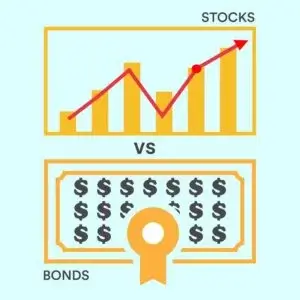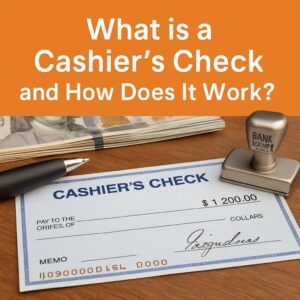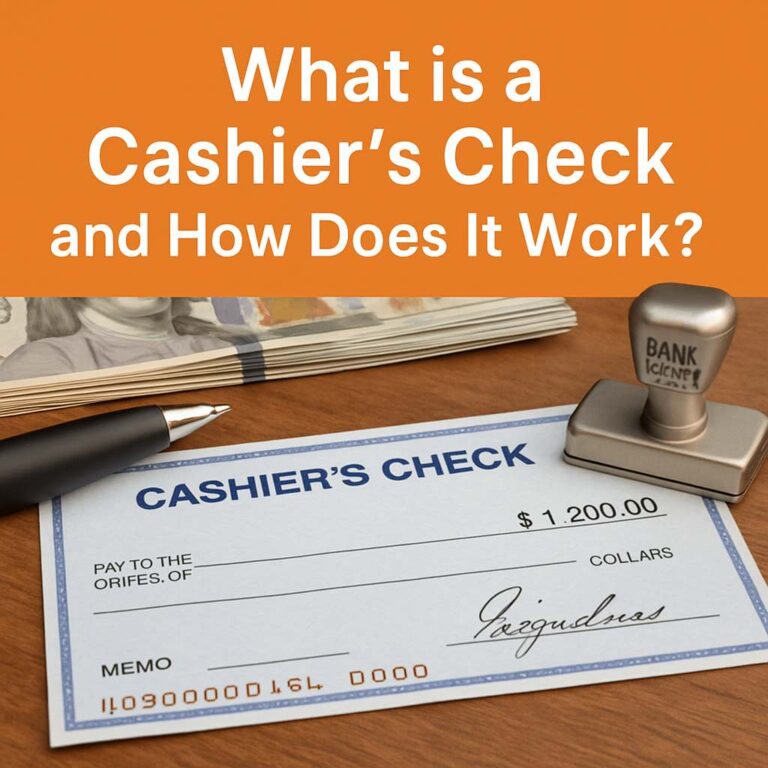In the case of stocks vs bonds which is better, most young Americans, especially those with growing families, have so much going on in their lives that wealth-building strategies aren’t typically going to take center stage. However, as we always say on this website, it is never too late (or too early) to start planning your financial future.
Although traditional 401(k)s are a great starting point, there are other investment methods that you can use to supplement your savings. One practical and straightforward way to grow your fund is to create an investment portfolio, which begs the question, which investments do you go with? Which is better, stocks or bonds?
When it comes to investments, stocks and bonds are often paired together. However, their behaviors, risks, and returns have stark differences. The article will take a deep dive into each investment and attempt to help you decide yourself when it comes to stock or bonds which is better?
The stock market can be daunting, so check out this podcast from Mak & G where they break down the NASDAQ!
Difference Between Stocks vs Bonds
We need to first look at the differences between a bond and a stock to answer the question of should I invest in stocks or bonds? Stocks will give you ownership, albeit a small portion, in a corporation. On the other hand, a bond is a loan you give to a government entity or a company.
The most glaring difference between the two investments is how they each generate profit, which is as follows:
- A stock needs to appreciate in value before being sold at a later time.
- A bond, for the most part, offers fixed interest payments over time.
In this next section, let’s see how investments work to determine the answer to the question of stocks vs bonds?
If you still need help figuring out the difference between stocks and bonds, check out this awesome video we made that explains the differences and similarities in two minutes.
Understanding Stocks to Determine Which is Better?
Stocks represent equity or partial ownership in a particular company. When purchasing stock in a company, you buy a slice of that company in the form of a “share.” The more stock shares you purchase, the more ownership you have in that company.
Let’s take, for example, a company with a current stock price of $20 per share. If you were to invest $2,000 in that company, you would own 100 shares of stock. Let’s next imagine that you hold on to this stock for the next several years, and the company performs well on a consistent basis. If its price jumps to $30 a share (which is an increase of 50%), your investment value doubles, and, in turn, you can sell the shares for a $1000 profit.
On the other hand, the opposite can also be true. If the company performs poorly in that time, your stock value could decrease, and the price could drop below the price you paid for them. If you sell them at this point, you lose money.
The word “stock” is the common name for this type of investment, but they go by other names, such as corporate shares, common stock, equity securities, corporate stock, and equity shares. There are several reasons why a company would offer shares to investors. However, the common reason is for raising cash to fund future growth.
Understanding Bonds to Determine Which is Better?
Unlike stocks, bonds are not the purchase of an ownership stake but a loan, whether to a government entity or a company. There are no shares to purchase, and there is no equity involved. Instead, the government entity or company is indebted to you once you buy the bond and pay interest to you over a specific period, after which the bond is repaid in full. However, bonds are not totally without risk. If, for example, the company files for bankruptcy during this period, you may not receive your interest payments. Ultimately, you may not receive your total principal amount either.
Imagine that you purchase a ten-year bond at $2,500, paying an annual interest rate of two percent. That would mean that you would get $50 in yearly interest payments, usually distributed through the year. At ten years, you will have earned $500 from interest and gotten back the initial $2,500 investment. When you keep a bond for its entire duration, you are holding on to the bond until maturity.
When it comes to determining the answer to the question of stocks vs bonds which is better, you know what you are signing up for when you purchase a bond. The consistent interest payments that a bond yields can become a predictable source of income over time. In the case of stock, we can’t say the same.
A bond’s duration will ultimately depend upon the type of bond that you buy. A bond duration can range from just a few days up to 30 years. Similarly, it’s interest rate or yield, will vary based on the bond type and its duration.
Check out this great video to learn more about bond basics.
Both stocks and bonds are investment instruments that are used as a way to grow funds. However, the way they work and their returns are vastly different.
When you hear discussions about stocks vs. bonds, you’ll often hear references to the equity market and debt market.
A liquid financial asset is an investment that you can easily convert to cash. Equity (stock) is the most popular type of liquid financial asset. Corporations will often issue equity (stock) to raise money for the expansion of operations. As a result, investors have an opportunity to take advantage of the benefits that come from the company’s future success and growth.
When you purchase bonds, you are issuing a debt which will ultimately be repaid to you with interest. Although a bond does not give you a stake in any company, you will be entering into a binding agreement requiring that company or government entity to pay you interest over time, plus the principal amount of the loan at the bond period’s end.
Bonds and stocks also generate returns in very different ways.

To see a return on your stock investment, you will have to sell company shares at a price that is higher than what you paid for them. When you generate a profit in this way, it is called capital gain. You can keep your capital gains as income or reinvest them. However, they’ll be taxed accordingly, as either long-term capital gains or short-term capital gains.
A bond generates cash in the form of interest payments, and while the frequency of its distribution might vary, it is generally distributed in the following ways:
- Treasury Bonds/Treasury Notes: Interest is paid in six months cycles until maturity.
- Treasury Bills: Interest is paid upon maturity.
- Corporate Bonds: Interest is paid on a semiannual, quarterly, or monthly basis or upon maturity.
You also can sell bonds on the market for capital gain. However, the fixed income associated with bonds is their most attractive feature for the most conservative investors. Similarly, certain stock investments offer a fixed income resembling debt more than equity. However, that typically is not the source of the investment’s value.
The Inverse Performance of Stocks vs Bonds Which is Better?
Another significant difference that helps determine the answer to the question of stocks or bonds which is better, is that the two seem to have inverse relationships regarding price. As stock prices go up, bond prices drop, and vice versa.
From a historical standpoint, bond prices fall based on lower demand each time stock prices rise, and more investors capitalize on this growth. Conversely, as stock prices drop and investors turn to traditional low-risk, low-return investments such as bonds, the demand increases, as does their price.
Typically, bond performance is tied to interest rates. Say, for example, that you purchase a bond that has a 2% yield. As interest rates drop, they may increase in value since new bonds might feature a lower yield. On the flip side, higher interest rates might mean that new bonds will have a significantly higher yield, thus lowering demand for your bond investment and lowering its value.
In order to stimulate spending and boost the economy during a downturn, the Federal Reserve will cut interest rates. These are usually difficult periods for the stock market. However, these lowered interest rates often send existing bonds values soaring, which reinforces this inverse price dynamic we are talking about.
The Risks as well as the Rewards
In this next section, we break down the risk and rewards in determining the answer to the question of bonds vs stocks which is better?
Stock Risks

The most significant stock risk that is associated with a stock investment is that the value of your stock might decrease after you have purchased it. There are different reasons why stock prices might fluctuate, but the bottom line is that if the company’s performance fails to meet investor expectations, the company’s stock price might fall. Because there are so many different factors determining why a company’s stock price could drop, stocks are considered a much riskier investment, especially when trying to determine the answer to the question of bonds vs stocks which is better?
With higher risks, however, often come a higher return. The stock market’s average yearly return sits somewhere around 10%. At the same time, the United States bond market, which is measured by Bloomberg Barclays U.S. Aggregate Bond Index, has an average ten-year return of 4.76%.
Bond Risks
United States Treasury bonds are typically more stable over the short term than stocks are. However, as noted above, the lower risk will naturally translate into a lower return. For a virtually risk-free investment backed by the United States government, treasury securities, like government bills and bonds, are the way to go.
Conversely, corporate bonds vary widely regarding risk and return levels. For example, a company with a high chance of bankrupting and being unable to pay interest on its bond would be considered far riskier than one from companies with a low probability of bankruptcy.
Agencies like Moody’s or Standard & Poor’s will assign a credit rating to a company, reflecting it’s ability to pay debt and is a good indicator of the company’s corporate bond risk. That is an important consideration when trying to answer the question of stocks vs bonds which is better?
Typically, corporate bonds are grouped into two distinct categories; investment-grade bonds and high-yield bonds, which can be defined as follows:
- Investment-grade bonds: Investment-grade bonds typically come from companies with a high credit rating, feature a lower risk, and yield low returns.
- High-yield bonds: Do you know about junk Bonds? It’s also known as junk bonds. Junk bonds come from companies with a low credit rating, feature a higher risk, but yield a higher return.
Weighing the Risks and Rewards

Most certified financial planners and other industry leaders say that stocks and bonds each have very distinct roles in an investment portfolio. By weighing these varying risk and return levels, investors can choose just how much money they want invest. This is how you build an investment portfolio. In that case, determining the difference between stocks vs bonds which is better, isn’t a simple one. In the end, the best thing to do is to use them both to complement one another.
Many analysts say that investors who are seeking higher returns should try and do so through investment in equities rather than purchasing risky fixed-income investments. The primary purpose of fixed incomes in an investment portfolio is the preservation of capital and diversification from stocks, not achieving the highest possible returns.
In Educounting, we love adages, and there are a lot of them used to help people determine the best way to allocate bonds vs. stocks in their investment portfolio. One such adage is the one that says the percentage of stock in one’s portfolio should equal 100 minus their age. For example, if you are 30 years old, your investment portfolio would contain 70% stock and 30% bond or other kinds of “safe” investments. If you are 60 years old, the portfolio should feature 40% stocks and 60% bonds.

The belief behind this adage certainly makes a lot of sense because as you start to approach retirement age, you’ll want to protect your finances from wild swings in the market. You do so by allocating more funds into bonds, while allocating less into stock.
On the other hand, detractors will argue that this adage is way too conservative, especially when you consider the fact that people live longer these days and the availability of low-cost index fund investments, which are a cheap, easy diversification tool with less of a risk than that of individual stocks. Folks in this camp will typically argue that a figure of 110 or even 120 minus the investor’s age would be a much better approach to diversifying your portfolio.
At the end of the day, a portfolio allocation of stocks vs bonds which is better, will come down to the investor’s risk tolerance. You need to determine how much volatility you are comfortable with, during the short term, as an exchange for more substantial gains in the long-term.
To help you decide, consider this fact:
An investment portfolio comprised of 100% stock investments is nearly two times as likely to end a year at a loss than an investment portfolio made up 100% of bonds. Considering your own particular timeline, you need to determine whether or not you are willing to handle those market downturns in exchange for higher likely returns in the long term.
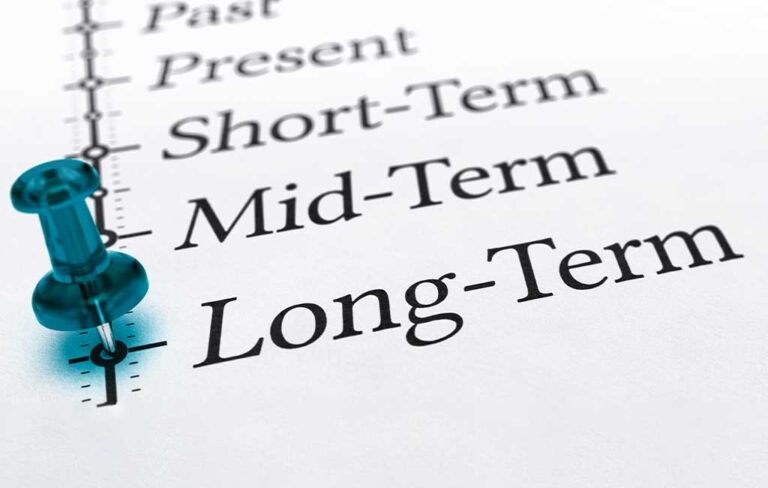
Living in the Upside Down: How to Handle Debt and Equity Role Reversals
When deciding between stocks vs bonds which is better, you need to consider that certain stock investments offer the same fixed-income benefits as bond investments. At the same time, there are also bonds out there that have the same high-risk, high-return qualities often found in stock investments.
A dividend stock is typically issued by a large, stable company that regularly generates high profits. Rather than investing their earnings in growing the company, they will distribute the profits among their shareholders. This is what is known as a dividend.
Since these companies don’t typically target aggressive growth, the stock price won’t rise as much or as quickly compared to stock in small companies. Still, consistent payouts are especially valuable for those seeking new ways to diversify fixed-income assets.
A preferred stock more closely resembles a bond. It is classified as a fixed-income investment that is riskier than a bond but far less risky than most common stock. These preferred stocks often pay higher dividends than ordinary stock dividends and bond interest payments.
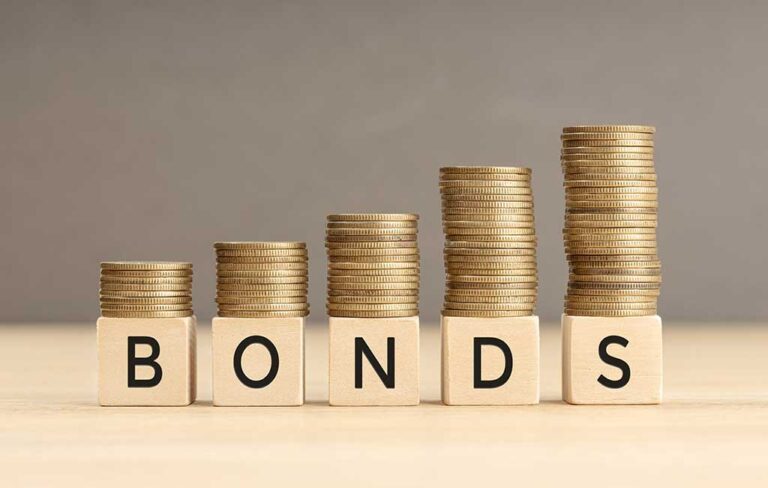
You can also sell your bonds for capital gains when the value increases to a level higher than you paid for it in the first place. That typically happens due to interest rate changes, improved agency credit ratings, or both factors combined.
In the end, however, if you are looking for high returns from investments in risky bonds, you are often defeating the inherent purpose of bond investing. Bond investments aim to diversify your portfolio away from equities while preserving your capital, and providing you with a cushion in case of a swift market drop.
Investing in Stocks vs Bonds
When it comes to answering the question of stocks vs bonds which is better for investing, the answer isn’t black and white. Ultimately, it will be up to the individual investor to make that determination.
In the meantime, here are four tips that can help you to decide:
Bonds are more conservative investments: Unlike stock investments, investing in bonds promises a fixed interest rate that will yield a guaranteed return. However, it will be slightly lower than that of a stock investment. Regardless of how the value fluctuates, you will receive a percentage yield from your initial investment.
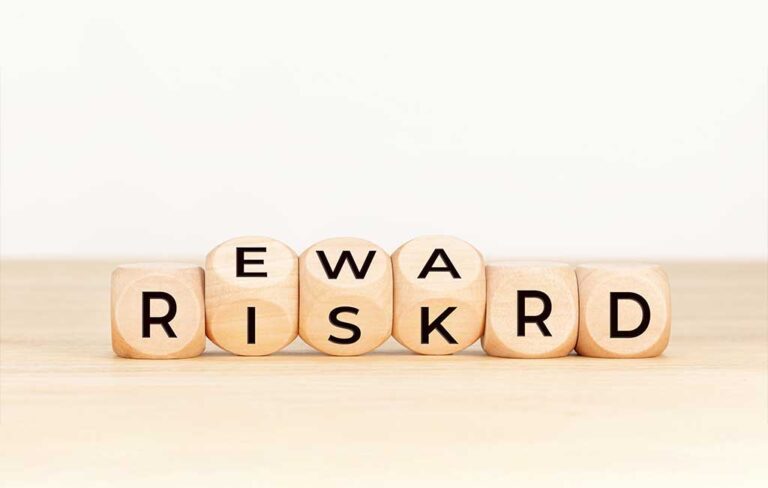
Wherever there is a risk, there is potential for reward: When thinking about bonds vs stocks investment, you must always consider the risk and the reward. An investment in bonds is safer for a reason. As a result, expect to yield a low return on the investment. On the flip side, stocks combine a level of unpredictability over the short term but offer better returns on investment. Since 1926, large stocks have returned, on average, 10% per year compared to long-term government bonds that have yielded 5% to 6%.
Consider playing long ball: Stocks are especially appealing to young investors for several reasons. First of all, young investors see themselves having additional time to recoup any potential losses. Furthermore, young investors might not have to manage the responsibilities that an older investor might, like having to support a family. That allows the younger investor to take more risks with their investment portfolio.

Diversification is also your best bet: If you are still not sure how to determine the answer to the question of stocks vs bonds which is better, remember that there is no single right or wrong answer. That is because stocks and bonds will react differently to different events. Therefore, blending both of these investment vehicles into your portfolio will help to increase stability.
Final Thoughts on Stocks vs Bonds Which is Better?
Regardless of which way you choose to invest your money, what matters most is when you start.
Here at this website, we believe in starting on the road to financial success as early as possible.
With that in mind, it’s never too early to learn about the differences between stocks and bonds.
You know what we always say. Let that sweet magic of compounding do your heavy lifting if you want a healthy financial future. Before you know it, you will build your wealth and save money in no time.


